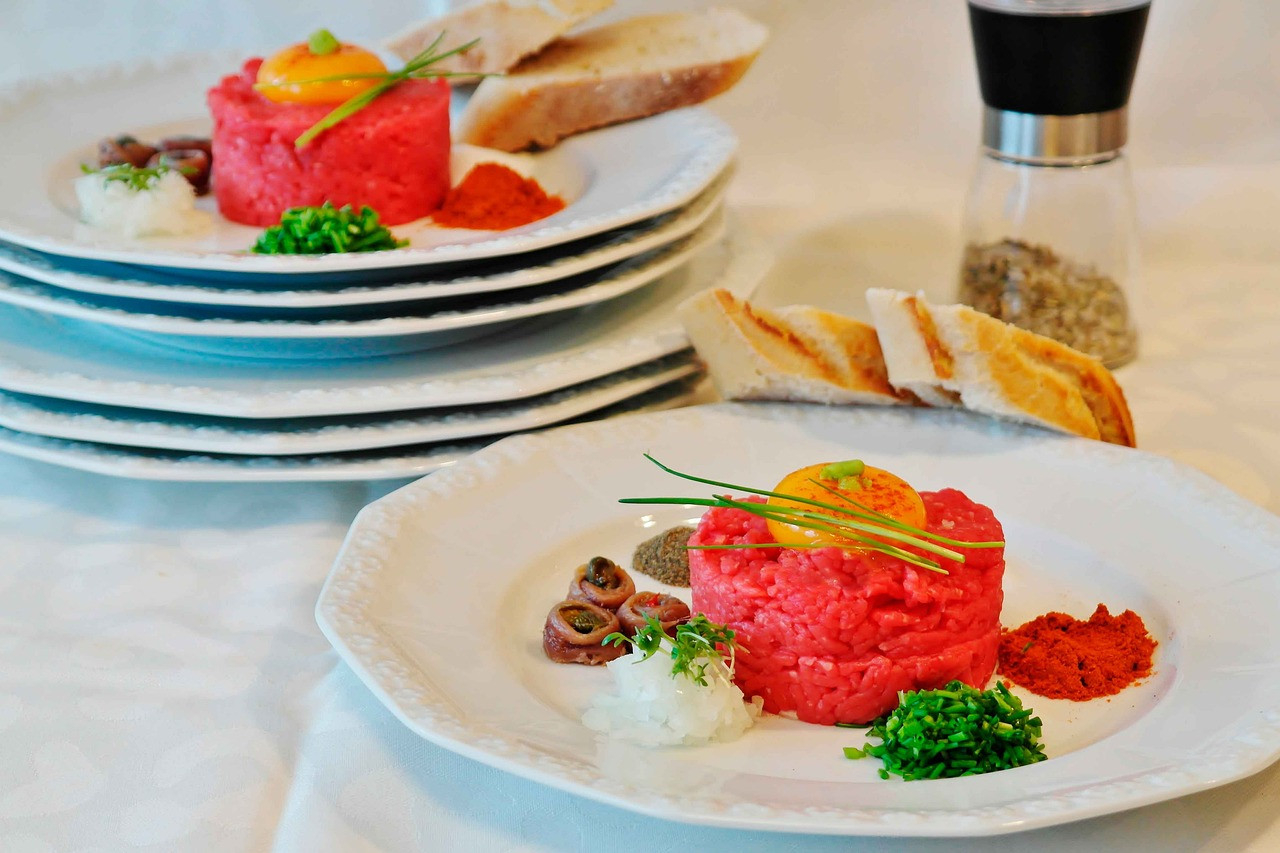Budapest - gastronomy, restaurants, bistros
Budapest, the bustling Hungarian capital divided by the Danube, is known not only for its impressive historic buildings and world-famous sights, but also for its rich and diverse gastronomic scene and top restaurants.
The city's restaurant culture is built on decades of tradition, but it is also constantly redefining itself, following modern gastronomic trends. Oinos Bistro and Wine Bar, one of the jewels of Budapest's hospitality scene, perfectly embodies this duality: respecting tradition while taking an innovative approach to food and drink.
The gastronomic evolution of Budapest
Budapest's restaurant culture began to develop in the 19th century, when the city, as the capital of the monarchy, became an important hub of international gastronomy.
The restaurants and cafés of the time were not only a hospitality
The cafés and cafés of the time were not only notable for their food but also for their cultural role: they were the venues for literary evenings, political discussions and artistic meetings.
The first half of the 20th century was dominated by traditional Hungarian cuisine, with iconic dishes such as goulash, fish soup and stew. During the socialist years, however, the quality of catering and restaurants declined significantly. After the fall of communism in the 1990s, Budapest's gastronomy boomed again, and over the past two decades the city has emerged as a major player on the international gastronomic map.
Contemporary restaurant culture in Budapest
Today, Budapest's gastronomy offers traditional Hungarian cuisine alongside international flavours, fine dining delights and the direct atmosphere of new wave bistros. From Michelin-starred restaurants to street food, the city offers something exciting for everyone. In the city centre, there are places at the top of the fine dining genre, while the wine bars and bistros have a more relaxed and youthful vibe. In recent years, cuisine based on locally sourced ingredients has become increasingly popular, with a focus on simplicity and quality.
Oinos Bistro and Wine Bar: tradition and innovation
Oinos Bistro and Wine Bar is one of the few restaurants in Budapest that manages to strike the perfect balance between tradition and innovation. Combining Italian and Hungarian gastronomic elements, the bistro is located in the heart of Budapest, in one of the liveliest districts of the city. The atmosphere of Oinos is both elegant and friendly. The warmly lit interior, clean design and direct service make the experience homely and special. On the menu, Italian classics as pasta dishes and pizzas are paired with Hungarian flavours.
The wine list also deserves a special mention. Oinos offers a wide selection of Hungarian and international wines, with a strong emphasis on supporting local producers.

Menu structure is the secret to success in restaurants and bistros
At Oinos Bistro, fresh, seasonal ingredients are at the heart of the menu. Brunch and starters are very popular, while main courses include risotto , pizza, hamburgers and tasty meat dishes. Desserts include Italian classics and Hungarian favourites. As for drinks, Oinos' special cocktails stand out alongside the wines.
Gastronomic community building
Oinos is not just a bistro, but a place that plays an important role in the gastronomic community of Budapest. The restaurant regularly organises themed dinners, wine dinners and workshops that give guests the opportunity to gain an even deeper insight into the world of food and drink. These events are not only about gastronomy, but also about the social experience that is a fundamental element of Oinos' hospitality.
Restaurants and the future of gastronomy in Budapest
As Budapest's gastronomy continues to evolve, more and more places are opening up that operate in a similar spirit to Oinos Bistro and Wine Bar. Local ingredients, sustainability and experiential dining are all key to this trend. Budapest is now not only a tourist destination, but also a gastronomic destination that offers a valuable and unique experience to visitors. Places like Oinos help to ensure that Budapest's gastronomic scene continues to thrive and inspire locals and visitors alike.
-
Stand Out with the Best eBay Templates and Boost Your Sales

Selling on eBay has never been easier — and at the same time, never more competitive. With thousands of new listings added every day, simply having a good product isn’t always enough. Shoppers have endless choices at their fingertips, and they're often making split-second decisions based on how a listing looks and feels. That's why presentation is everything.
-
ADU Builders Bay Area - Delivering Tailored ADU Solutions

Accessory Dwelling Units (ADUs), widely known as granny flats, guest houses, backyard suites, or secondary dwellings, are quickly becoming an integral part of housing solutions throughout the Bay Area. Driven by supportive housing regulations and increasing demand for affordable residential options, ADU construction has surged dramatically.
-
How to Protect Your Car During Winter Shipping

Winter car shipping presents unique challenges due to harsh weather conditions such as snow, ice, and extreme cold. Whether you are relocating, selling a car, or transporting a vehicle to a different state, ensuring proper vehicle protection is crucial. Failing to take necessary precautions can result in damage, mechanical issues, or delays.
- What is Device as a Service?
-
How to Properly Double Cleanse for Radiant Skin

Double cleansing is a game-changer in skincare, ensuring that your skin is thoroughly cleansed from impurities, makeup, and excess oils. This two-step face wash routine helps prevent breakouts, improves skin texture, and enhances the absorption of skincare products. If you’ve ever wondered how to properly double cleanse or which is the best cleanser to use, this guide will walk you through everything you need to know.


